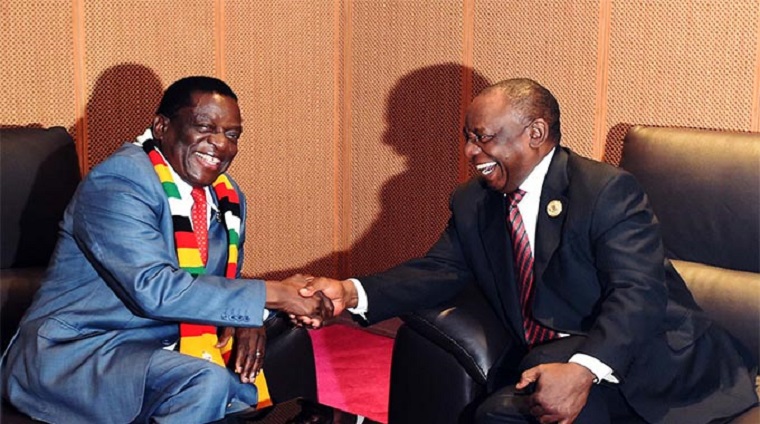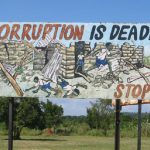 It is in South Africa’s interest to see a thriving and stable Zimbabwe. A collapse of its neighbour’s economy would probably see an influx of legal and illegal migrants into South Africa – a situation that could fuel xenophobia and further strain service delivery.
It is in South Africa’s interest to see a thriving and stable Zimbabwe. A collapse of its neighbour’s economy would probably see an influx of legal and illegal migrants into South Africa – a situation that could fuel xenophobia and further strain service delivery.
Yet there has been a bewildering contrast between South Africa’s messages of solidarity and its inaction where it matters. On the one hand, President Cyril Ramaphosa’s government has maintained its support for President Emmerson Mnangagwa’s administration. South Africa was the first to congratulate him on his electoral victory in August 2018. This has been followed by spirited calls for the unconditional lifting of sanctions and restrictive measures placed on Zimbabwe nearly two decades ago.
On the other hand, South Africa has come short of providing what Mnangagwa urgently needs: a financial bailout. The just-ended Zimbabwe-South Africa Bi-National Commission session – the third since the inaugural session in 2016 – might have put paid to the many rumours that South Africa would provide Zimbabwe with a much-needed cash injection. Instead it ended with a joint communiqué that reads more like a political statement of solidarity with little in terms of relief for its cash-strapped neighbour.
Established during the tenure of former presidents Robert Mugabe and Jacob Zuma, the commission has been little more than an annual symbolic gesture of friendship between the two. Ramaphosa’s team sent ahead of the Bi-National Commission engaged in robust meetings with key players in the private and public sectors presumably to try to establish how South Africa could help its beleaguered neighbour.
While the decision to not bail Zimbabwe out is probably based on practical economic calculations, the anti-sanctions rhetoric is a different matter. A cursory view of the anti-sanctions call might lead one to the conclusion that lifting sanctions would grant Zimbabwe access to lines of credit from the international market and thereby ameliorate its currency crisis.
However, considerations for South Africa are as much political as they are economic. Sanctions imposed on Zimbabwe by Western countries relate to the blatant human rights abuses of the Mugabe regime. South Africa’s anti-sanctions position could also be interpreted as a general stance – shared by the wider Southern African Development Corporation (SADC) region – against sanctions in general.
The ‘sanctions must fall’ mantra should be seen as a distraction from the economic mismanagement of the past three decades. Even Mnangagwa has said the ZANU-PF government shouldn’t use sanctions as an excuse for the country’s economic woes.
So why has South Africa taken up the ‘sanctions must fall’ mantra while staying silent on the human rights abuses, killing of protesters and heavy-handed clampdown on civic space during the January fuel hike protests?
South Africa is wary of being perceived as aligning with the West, especially the United States (US). The US government has been vocal and forthright against the Mnangagwa regime’s use of force against protesters to the extent of renewing sanctions for another year.
Continued next page
(172 VIEWS)


